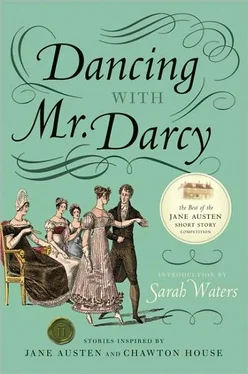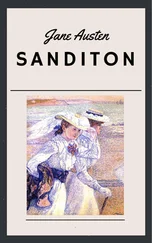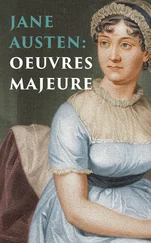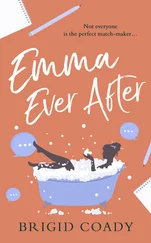On our return to the Cameron semi, down the cul-de-sac, I was able to describe the oriental dishes in some detail to my father. He looked appalled. However, Uncle Simeon caught the mood of the moment and proposed a ‘takeaway’. Oh bliss! Mother had already forbidden David and me to ever buy anything from the Barbecued Chicken Van that passed our house in Leicester. In retrospect, this was wise. Mother’s rationale was based on the limited opportunity for personal hygiene in the van, and the greasiness of the rotating golden chickens. Subsequent history sided with Mum. The barbecued-chicken man was found guilty of lewd behaviour -revealing himself to two young girls from my school. I digress. On this night in North Cheam, Mother cast caution to the wind and was actually seen sucking a spicy spare rib. My own palate had been fine tuned on Vesta paella. Chicken chow mein transported me to a foreign land. My own dragons were held at bay at least for one evening.
Anecdotes, wit, conviviality and a takeaway, and just as we prepared to leave for Leicestershire, Uncle Simeon made a proposal concerning me – that I should stay for a week in North Cheam and that they would return me to Leicester with my cousins, for David’s twenty-first birthday party on 15 August.
‘That’s so kind, and so generous, but I can’t possibly. I’m waiting for my results. I must be home.’
Herein lay the third and major reason for my alienation from the world – my impending A level results. The unfairness, the iniquity, the sheer bad luck of the ‘trick question’ had haunted me throughout the summer. The results were due out on 12 August. My father, always positive, loyal and encouraging, kept saying something about the Glorious Twelfth, but I felt the reverse would be true. My apprehension concerned ‘the Watershed’.
I had been studying for English, History and Art A level. I was expected to do best in History and I had worked very hard for all of them, but History had taken a significant amount of revision. Each night I would open the curtains just at the angle to ensure the rising sun would hit my face and wake me early to resume revision. At night, as they went to bed, my parents would come and beg me to stop. But I was driven.
The library curtains wafted in the warm, gentle breeze. They were closed to keep the candidates cool. Linen with a modern pattern – mid-brown with abstract gold, turquoise and pink shapes – variations on a distorted square motif. I studied the paper: ‘A watershed in English history—’. Panic paralysed my mind and my pen. What was a ‘watershed’? I schooled myself to breathe. How could I answer the question, air my knowledge, if I didn’t have a clue what a ‘watershed’ was? My eyes rotated with fear. I cast about, surreptitiously surveyed my calm companions. I was undone.
The post-examination post-mortem did little to allay my fears, or improve my vocabulary.
‘Well, I would have thought it was obvious,’ said Mr Robertson, my tutor, quite dismissively.
At home there was discussion. My mother felt that it was a place on a river for keeping boats safe.
‘That’s a boathouse, my dear.’ My father thought it was tough to use such a term. He believed it was connected to rivers dividing, but could not be certain, for wasn’t that a confluence?
My brother said that it would be acceptable if I had treated it as a turning point. My red Chambers said, unhelpfully, that it was the line separating two river basins, and, more helpfully, a crucial point or dividing line between two phases. Something in my mind prevented me from revisiting the content of my response. Only disappointment and bafflement remained. I tasted the sour anticipation of failure.
That night there was no opening of the curtains just enough to enable an early start to revision. I felt deflated and dismal. It must have been an hour later I heard my brother’s tread on the stairs. There was a soft tap on my door. His head was silhouetted by the landing light. In his mock formal tones he said: ‘A boathouse in English history – discuss.’
Back to North Cheam, and my newly acquired relatives would brook no opposition to their invitation. I turned to my mother, who saw me as the cement for the resuscitated relationship with her favourite cousin Simeon. I turned to my father. His kind grey eyes batted back my objections – it might take my mind off the results, it would be fun to see the galleries, theatres, Carnaby Street…. He went to fetch my case from the car and slipped me two ten pound notes. He promised he would open my envelope and ring me immediately. The spectre of the envelope on our doormat prompted further dread. Panic coursed round my heart. And I had been abandoned in North Cheam.
James generously moved out of his bedroom; I was installed. A knock at my bedroom door the following morning preceded Uncle Simeon in his mid-calf dressing gown, bearing a cup of tea. I propped myself up in bed and wondered about what they might eat for breakfast. Drawn downstairs by a delicious smell of bacon, I was greeted warmly by the family. Uncle Simeon asked if I’d ever been to Seaford, and I said not. He declared that we would visit it that very day: ‘Much more pleasant than Brighton – quieter, more refined and so select.’
Few families can have arrived in Seaford at such speed. It was a relief to disembark. I regained the power in my knees as we walked up towards Seaford Head. The sea shimmered silver, backlit by the morning sun rising in a cloudless sky: silver sea with ice-blue blotches, becalmed, with a fast-evaporating low mist. We walked towards the cut-away cliffs. Thin dark flint strips lined the shocking white chalk face. Gulls whirled high above, calling, and we strained to see them in the bright light. I was entranced. Consciously I drove my demons away and allowed myself to be overwhelmed by the sheer majesty of the moment.
‘Why, Uncle, it’s beautiful. Look at the light on the sea. Is there a word for the twinkling? A “silver coruscation”?’
Uncle Simeon shrugged, baffled, but he beamed at my delight.
Back in the centre of Seaford cousins called for fish and chips, to be eaten ‘alfresco’, a new word for me and one I could certainly use with my friends in Leicester. Seaford itself did not disappoint, with its gorgeous vistas and special shops. The family went its various ways and I found a second-hand bookshop on Place Lane, a veritable treasure trove. And there I found it – cerise cover, bonnet in beige with ribbons like tendrils, creeping across the front; black print proclaiming: Pride and Prejudice by Jane Austen. One and thruppence was pencilled in the inside cover. This was the treat that I had promised myself for after the exams. I’d held back from securing a copy, fearing defeat. But now I reasoned that it would be better to embark on the novel before my anticipated disappointment could spoil it.
My brown paper bag attracted James’s attention.
‘What’s this then?’ He took the package from me and gasped in horror. ‘What are you going to do with this?’
‘I’ve always wanted to read it.’
‘Even if you don’t have to? How weird.’
Maggie sprang to the novel’s defence, but James warmed to his theme.
‘I had to write an essay for my O level on “The humour of Jane Austen”. Imagine that! It’s like being asked to write something on snow in summer.’
That evening, back in the bedroom at North Cheam I took my book out of the brown paper bag. I snuffled in the delicious mustiness of its yellowing pages. I began to read. At 1 a.m. I found myself opening the curtains, at just the right angle, for an early start – the first time since the exams.
Each day in North Cheam was like a chocolate plucked from a rich and delicious selection box. Footsore, yet indefatigable, Maggie and I set off, negotiated the Tube, and explored more delights of the capital city. I was entranced and the days passed most pleasantly.
Читать дальше












